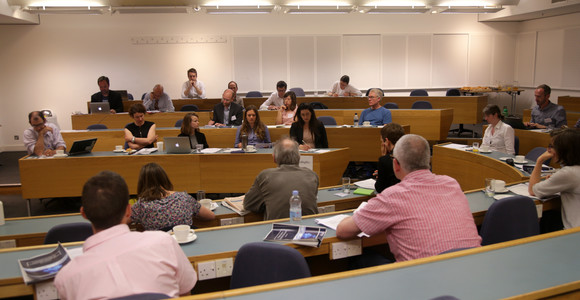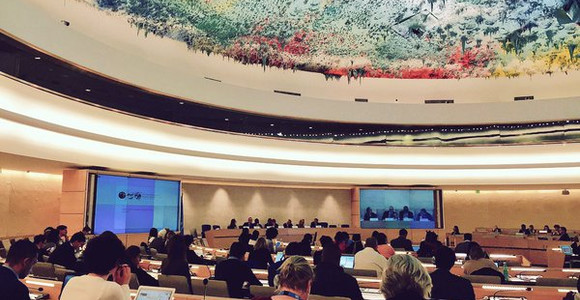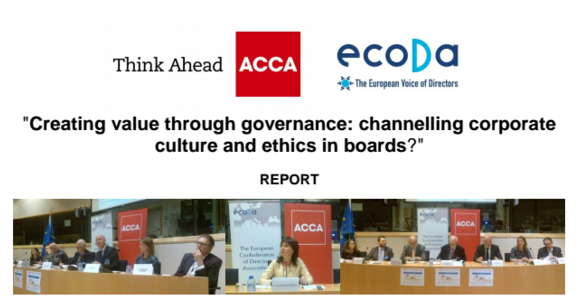There is increasing awareness amongst practitioners that companies must confront systemic risks, including those arising from the environmental and social areas such as climate change and inequality, that may result in stranded assets, disruption to supply chains, as well as economic and political instability. There has been limited discussion of what these broad systemic risks mean for corporate governance regulation and practice; how these medium and long-term risks can be assessed and reflected in business, investment, and insurance strategies; and how regulators can best engage with these risks. Discussants examined how companies, long-term investors, and insurers relate to pertinent systemic risks, and identified best practices and potential reforms for corporate governance, policy-making, regulation, and reporting.
Summary of the discussion available here.
Speakers:
- Opening: Marianne W. Lewis, Dean of Cass Business School and Professor of Management
- Keynote speech: Paul Druckman, Chair of the Corporate Reporting Council, FRC
- Hugh Shields, Senior Accounting Expert, Huawei
- Bruce Duguid, Director, Hermes EOS
- David Stark, Senior Vice President, Marsh
- Gerhard Schnyder, Reader in Comparative Management, King’s College London
- Dina Medland, Independent writer and Forbes Europe contributor (moderator)
- Amélie de Montchalin, Vice-President for Policy & Foresight, AXA Group
- Kirsty Collins, Senior Analyst, Global Responsible Investment, Aviva Investors
- David Shammai, Senior Corporate Governance Specialist, APG
- David Pitt-Watson, Executive Fellow at London Business School (moderator)
- Closing: Nathan Fabian, Director of Policy and Research, UNPRI
Background briefing
Defining broad systemic risk
When the term systemic risk was coined at the start of the 1980s by William Cline, his argument was that to provide a vulnerability assessment within a system, the object was to measure that vulnerability as “a function of the system’s ability to survive the impact of a shock originating from ... an event.” In the context of the Latin American debt crisis, Cline focused on macro-economic risk as the measure for economic vulnerability. However, the concept of systemic risks may also be used to look at the causes of macro-economic risk broader than simply economic indicators, including external events such as oil, food and raw materials price shocks.
In this context, the (management of) broad systemic risk can be discussed as:
a. The management of risks induced by sources from outside a (governance) system, such as political and ecological instability, or a change in resource availability;
b. The management of the vulnerability of (governance) systems to unforeseen events that may not be solvable by (governance) principles and actions originating within that system;
c. The management of risks that arise from and/or are of consequence to other (governance) systems, such as the political, social, and economic (governance) systems.
Broad systemic risk not only describes the risks stemming from vulnerabilities within a given (governance) system, but also the interdependence between broader systems. The concept, therefore, allows for the discussion of economic risk in relation to ecological and political risks.
Relevance to corporate governance
Historically, the regulation of systemic risks has predominantly focused on preventing bank failure. There is now increasing awareness amongst practitioners that companies have a role to play in engaging with these broad systemic risks, not least because the risks arising from the environmental and social areas, including but not limited to climate change and inequality, may result in stranded assets, disruption to supply chains, and economic and political instability. The problem is that incentives exist for corporate managers to engage in risk taking even where the positive expected (short-term) value to investors is correlated with a negative expected value to the public. The question therefore arises how corporations and investors can check and balance these incentives and whether it is appropriate to regulate for systemic risks in order to alleviate the overall danger to other market actors and third parties.
We discussed how broad systemic risks relate to corporate governance; how these medium and long-term risks can be assessed and reflected in business, investment, and insurance strategies; how regulators can best address these risks; and what relevant economic models are available that engage with these broad systemic risks. Discussants examined best practices and potential reforms for corporate governance, policy-making, regulation, and reporting.
1 - The role of companies and regulators
In the context of the 2017 FRC review of the UK Corporate Governance Code, the first panel examined how companies identify, manage and report on systemic risks. The Code instructs directors to carry out “a robust assessment of the principal risks facing the company, including those that would threaten its business model, future performance, solvency or liquidity” (C.2.1). To explore what this means in the context of systemic risks, the panelists discussed how the Code may evolve to provide guidance to help companies to put in place the right risk management systems and looked into the future to manage them proactively. We focused on three questions:
- What is best practice for governance and accounting in relation to a broad de nition of systemic risks, including social and environmental ones, specifically in risk management and reporting?
- What can policy-makers, regulators, and standard-se ers learn from companies that engage with broad systemic risks in their strategy?
- How can policy-makers, regulators, and standard-setters provide guidance and support to companies to ensure they adequately take account of broad systemic risks?
2 - Investor strategies for considering systemic risks
The second panel explored best practice amongst forward-looking investors. Considering the capacity for (institutional) investors to engage with companies and provide guidance through market-based activity, panelists considered how investors can integrate the consideration of systemic risks into their investment and engagement strategies. We explored the benefits and limitations of stewardship-based approaches for tailoring investment strategies and engaging with investee companies on these issues.
The panelists focused on four questions:
- What types of best practice are available for integrating relevant information concerning a broad de nition of systemic risk into investment and engagement strategies?
- What can investors do to support companies that seek to adequately take account of broad systemic risks?
- What do investors need from markets, regulators, and policy-makers to be able to effectively engage with broad social and environmental systemic risks?
- How can markets, regulators, and policy-makers effectively encourage the incorporation of broad systemic risks into investment strategies?
Integrating systemic risks in the UK Corporate Governance Code
There are a number of ways that the UK Corporate Governance Code could be amended to encourage companies - and by extension, investors - to deepen their understanding and consideration of systemic risks, including:
- Greater focus on long-term value creation, including potential requirement of long-term value creation strategy
- Reinforcement of risk management and explicit recognition of importance of systemic risks
- Modernisation of fiduciary duties of company directors to incorporate the consideration of systemic risks - and further clarification in due course of the fiduciary duties of institutional investors.
Useful resources:
First event on the "Key principles of a new corporate governance"




















